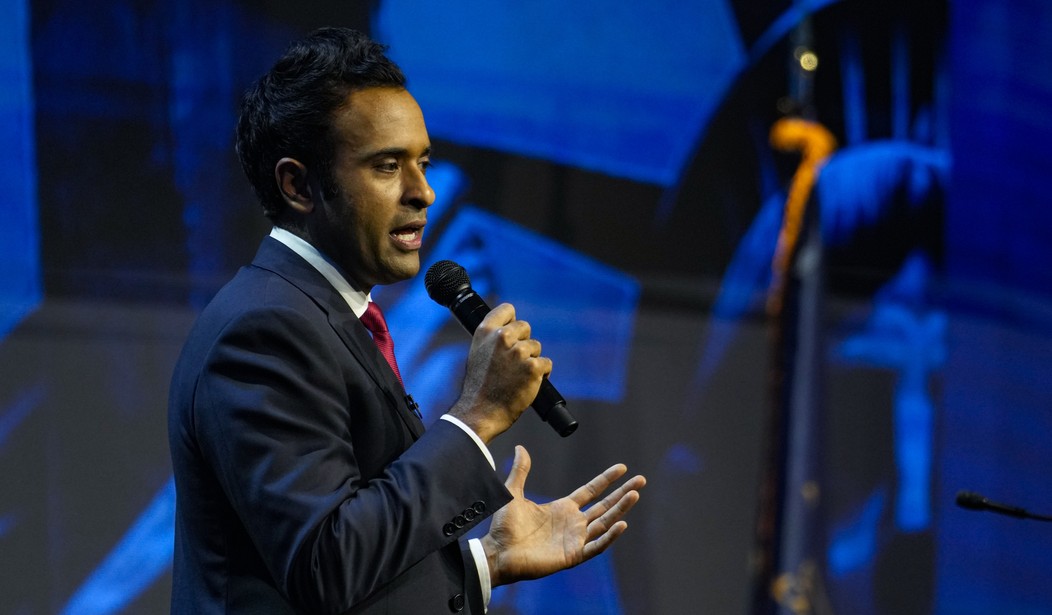As House Republicans have settled back into Washington, D.C. this week fresh off a month-long hiatus, all eyes will turn to whether the party in control of the lower chamber can muster any resistance against the current regime running roughshod over the nation and blatantly interfering with the upcoming presidential election.
Since Congress embarked upon their month-long recess, the (essentially) presumptive GOP nominee was indicted twice, once by the Department of Justice which House Republicans continue to fund, and another time in a jurisdiction overseen by a Republican Governor with Republican-majorities in both chambers of the state assembly. To add insult to injury, the trial dates for President Trump’s litany of cases have been set conspicuously near the days voters will be heading to the polls for the first time during the 2024 election season, incontrovertible evidence of election interference (if not the regime’s outright mockery of the Democracy they purport to care so deeply about).
Even still, President Trump, though he certainly bears the majority of the burden, is not the only one feeling the wrath of the weaponized government. The Biden administration is targeting pro-life activists, traditional Catholic parishes have found themselves on FBI watchlists, and hundreds of people who exercised their right to assembly continue to languish in the DC prison, denied their due process rights. Moreover, for those who have praised the integrity of local Republican-controlled state governments as bulwarks against the excesses of a Democrat-controlled federal or state government, recent malicious prosecutions occurring within the confines of ostensible “red-havens” of Georgia and Texas summarily repudiate that proposition. Eighteen other Republicans – from esteemed lawyers, constitutional scholars, public servants, and some private citizens – are embroiled in criminal charges, unable to look for refuge to the Georgia Governor, who seems to place greater value in the interests shared by those who frequent the same Davos events he attends, rather than those held by the people who elected him. A not dissimilar case is occurring in Texas, where Attorney General Ken Paxton must defend himself in an impeachment trial for, principally, the original sin of defeating a member of the Bush family in his recent election. Make no mistake: supporting Trump is now an indictable offense which establishment Republicans are cheering on.
Indeed, the House Republicans are outnumbered – the Trump-aligned members even more so – but they are not powerless. Recall, when the left controlled only the lower chamber of Congress, they tactfully used the same relatively limited power they had to stall, impede upon, and drain resources from the incumbent Trump administration. This month marks four years since then-House Speaker Nancy Pelosi initiated the first of two impeachments against the duly elected President Trump, in a move that was wholly manufactured and void ab initio (the GOP-controlled Senate was not going to convict the President). However, one could argue that the spectacle was a success insofar as the process then, as it remains today, was the punishment.
Now that roles are reversed, Republicans have been lethargic at best, and complicit at worst: they granted Biden a victory on the debt ceiling agreement, enabled the endless funding of the Ukraine war while families in Maui continue to suffer, have left unchecked the worst border invasion in our country’s history, and have permitted – if not facilitated – the politicized prosecutions of Biden’s to-be opponent. An opposition party worth its salt would not lament its relative lack of power, but instead use its significant authority to do everything feasible to mount some sort of strategic opposition.
For what it’s worth, the House majority campaigned on stopping the “weaponization of government,” unmasking the Bidens’ corruption, issuing subpoenas to FBI officials, and stopping the “blank checks” to Ukraine. This time, though, voters were told this wasn’t bluster: to prove it, the power-sharing agreement for which twenty members valiantly fought in January – including but not limited to a single-member motion to vacate the speaker – were supposed to serve as leverage to ensure the leadership would keep their word. The new House majority promised to change the game in Washington, and for good reason too: this current House has been served on a silver platter issues to tackle on behalf of the American people. Still, nine months in and the country has precipitously worsened since Speaker McCarthy was elected on the fifteenth ballot. The hour is late. It is past time they begin wielding the power they have. This can be done in multiple ways.
Some have floated the potential of a Church-style committee to confront the egregious actions of this administration – and the regime more broadly. The House could investigate the circumstances which “arguably involve the most massive attack on free speech in United States history,” pertaining to the federal government’s collusion with big tech. As once promised, January 6thtapes should be released to the public. McCarthy once demanded the January 6th Committee preserve all records, which did not happen. What will his recourse be? McCarthy also promised that the debt-ceiling agreement would put Republicans in a prime spot with the appropriations negotiations. Seal the border, release the January 6th tapes, withhold funding – if a government shutdown must happen, so be it. All Republicans should vocally join the campaign pressuring Brian Kemp to grant Georgia State Senator Colton Moore’s calls for an emergency session to investigate and defund Fani Willis (and ultimately remove the prosecutor) and continue to delegitimize each of the indictments levied against the party leader. It goes without saying, but Republicans in the House must promptly begin impeachments of Biden, Garland, and Mayorkas. Not only are the proceedings necessary, but they also drain the administration of resources otherwise used for their agenda in the year leading up to reelection.
The failure of the Republican party to prevail in election cycles since 2016 is because of the party establishment’s lethargy – a party which has been granted power by voters time and again, yet continue to squander it at every turn. Trump authored the winning playbook for Republicans in the twenty-first century when he resuscitated the party from life support in 2016. Without Trump, prospect of a Republican nationwide electoral victory would be all but lost, the Blue Wall insurmountable. Even still, it was Republicans who obstructed the Trump administration – It was at the hand of an establishment Republican that the years-long quest of repealing and replacing Obamacare was destroyed. Republicans stood in the way of President Trump receiving the requested funding for a border wall, and Republicans continue today to stand by – incapable of effectively wielding their power – in the face of blatant weaponization of the justice system.
Trump won the election the first time without the party’s institutional support. If necessary, he may have to do it again. But the “party” as it exists faces a time for choosing: either adopt his lead to reflect the will of the people, or remain idle as the destruction of this country continues untrammeled.













